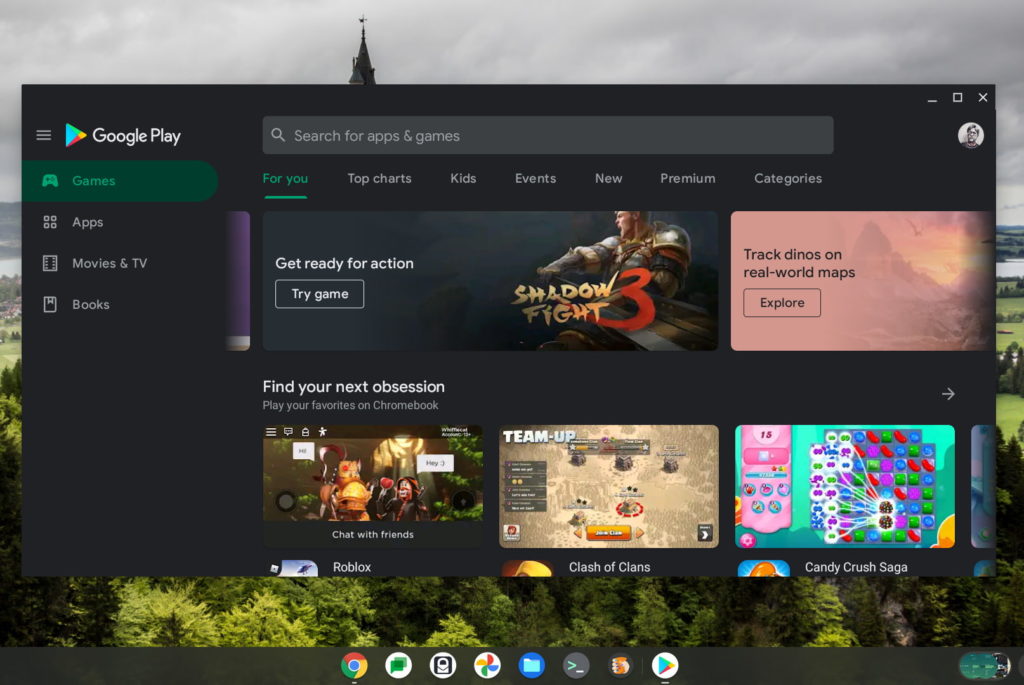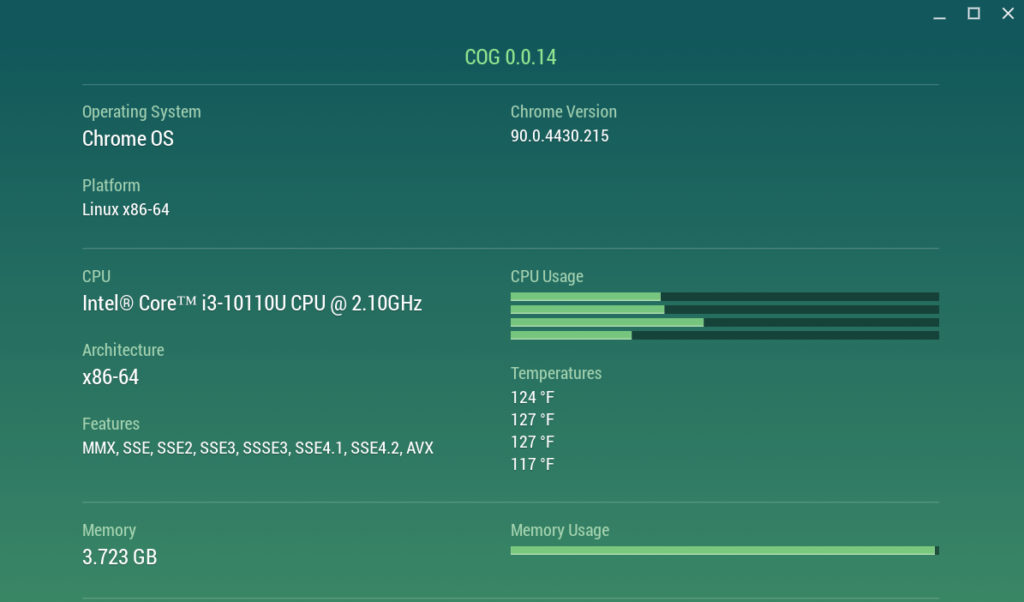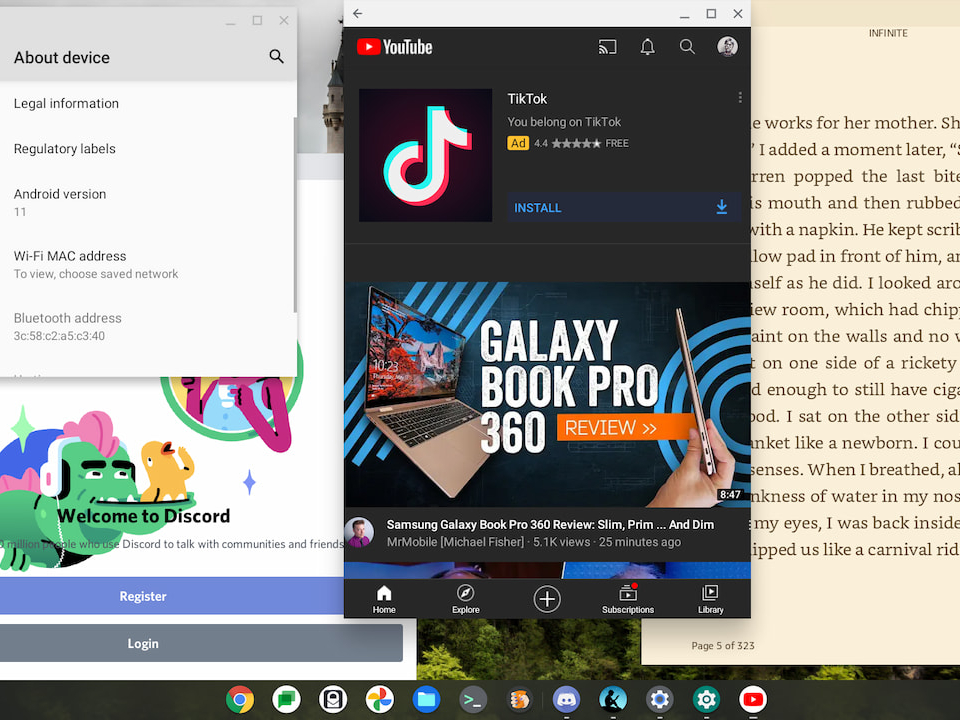Yesterday, I noted that some Chromebooks waiting for the Stable Channel version of Chrome OS 90 were getting the software update. For those devices, specifically, those built on the “hatch” boards, users were observing many Android app issues. Since those Chromebooks are the first to get the Android 11 update, with a new runtime environment, I’m not surprised. And I saw the issues for myself this morning, but I was able to resolve them. Here’s how to fix Android 11 issues on a Chromebook.
To be clear, even when apps are running properly in Android 11, I’m not convinced the approach is truly optimized. App responsiveness appears slower to me than before the update. My hope is that further optimizations in the future address this.
Before explaining what I did, here’s a quick recap of the Android 11 issues folks have seen after their Chromebook was updated. For some, the Play Store wouldln’t even load. For others, Android apps wouldn’t launch or kept crashing. And in a few worst case solutions, Chromebooks seems to freeze up during or after the upgrade process.

I updated a “hatch” device, the Lenovo Flex 5 Chromebook with a 10th-generation Core i3 and 4 GB of memory this morning to Chrome OS 90. After the update was installed and the device rebooted, the fans went berserk and “things” were downloaded when I enabled the Google Play Store. I say “things” because the notification panel showed me download activity but the text descriptions were completely blank. Clearly, not a good sign or good user experience.
After a reboot, it took me three additional reboots before I could sign in to the Chromebook. That’s very strange behavior. Once I was able to use the Chromebook, I did experience Android app crashes.
Based on what I reported yesterday, that some Reddit users removed and re-enabled the Google Play Store, I attempted that. And it worked for me. I’m now able to run apps in Android 11 on my Chromebook without any issues so far, aside from some general sluggishness.
I equate that behavior to two things.
First, Android 11 is using something called ARCVM as the runtime environment. This approach uses a software container to run the Android apps, much like the container used to run Linux apps. That adds some resource overhead, which could be related to the Android app performance I’m seeing.

Second, this Chromebook I’m using only has 4 GB of memory. And it’s pretty much all used up with just the three Android apps I ran simultaneously when testing. I’m not even using the Chrome browser. Again, I expect some performance optimizations and I’m not suggesting that you’ll need 8 GB of memory in a Chromebook to run Android apps going forward. Although more RAM is always helpful. 😉
There’s one other thing that might help if you’re still experiencing Android 11 app issues on your Chromebook with Chrome OS 90. Resetting all of your flags at chrome://flags has reportedly helped as well. I did not do that, for what it’s worth.
If you have Chrome OS 90 with Android 11, let me know if you’ve seen any issues. As I said yesterday, I think the initial problems tend to be with Chromebooks that are migrating from Android 9 to Android 11. That’s just my gut opinion based on what I’ve researched and experienced, of course.



23 Comments
Do you have a link on how to remove and re-enable the play store? I can’t even get it to run (nor any android app) since the update
Stay Home – Stay Safe
Steve
Visit Settings, Apps, then enable Play Store. Toggle switch to remove android. Remember this nukes all apps and data, so if you do it you will need to wait for apps to re-download when you enable it again, including re configuration of all your app settings, such as log in details, and app preferences.
It’s just in settings, the settings on clock click, apps, Google play store > remove.
Found it. It’s been so long I forget it was in the settings. And that seems to have worked, although the Chromebook seems slow. I have the original galaxy Chromebook and a pixel book I’m going to try it on next
Stay Home – Stay Safe
Steve
I have this CB (CP713-2W-5874) which is a hatch/kindred 10th gen i5 I purchased in march. I intially tried the beta channel and it updated to android 11. Apps worked at first but there was some issue with resizing and after about 20 min they would freeze. Not wanting to deal with it i switched to the stable channel and it took until yesterday 5-13-21 to update to 90. Its seems the be fixed ive had no issue. Didn’t have to mess with any settings all my apps work fine and the size is correct. I do use quite a few flags. Happy for now.
Hello ! As I’ve written on Reddit, resetting the flags resolved all the troubles I had. My Spin 713 was painfully slow just after the update. Firstly I’be thought the problem came from an extension. But going back to normal on the flags front reverse all the troubles. And I must confess 90 is working pretty nicely !
Arcvm uses a virtual machine to run Android now, INSTEAD of a container (well, now it’s a container within a VM for reasons). With just a container like before, the apps are running natively; with the VM you have extra layers of overhead to go through. This is almost always going to be slower and use more resources than the container solution. This is how Linux (Croatini) works today.
However, Google feel the VM is more secure and it’s probably easier to update Android on it since they only have to port android to run in the VM’s virrual hardware instead of every platform’s quirks.
I absolutely am not looking forward to this though, as I expect yes, worse performance, more overhead, and at least in the short term, lots of bugs. Plus Google seem to keep doing things in different updates to the VM system that breaks a bunch of peoples’ Linux containers, which I expect to happen to a lot of ARCVM people. And subtle things like how you can’t actually see Arc processes anymore.I. the chrome take manager and kill them if needed really sucks.
“…this Chromebook I’m using only has 4 GB of memory. And it’s pretty much all used up…”
In my experience with Chromebooks that have 4GB of ram, the system always uses about 3.75 of those 4 GB no matter what you do or do not do. So I do not think the above is an especially relevant symptom to the problems you are trying to diagnose. Could that be right?
Hello ! As I’ve written on Reddit, resetting the flags resolved all the troubles I had. My Spin 713 was painfully slow just after the update. Firstly I’be thought the problem came from an extension. But going back to normal on the flags front reverse all the troubles. And I must confess 90 is working pretty nicely !
Too much beta testing on users. Too much android update getting in way of Chrome OS update. Have they hired a load of ex Microsoft devs or something? All these OS in one is complex I understand, so maybe it’s time to go to twice yearly updates for non security. No bluescreens and other Windows bug type issues in Chrome OS was one of my main likes when it face arrived.
Lets be honest on performance too. If you want good performance in 5 years and want to run Chrome OS and Android Apps or Linux apps, then the Chromebook you buy today needs 12gb RAM so 16GB, i7 CPU. 4gb RAM will only be OK if you are sticking to Chrome.
Now that Neverware are going to be supporting EOL Chromebooks, that extra performance will not be wasted.
That hasn’t been my experience. With an Acer R11 (4/32).
With one instance and tab of the browser open, a half dozen extensions enabled and Play Store installed, the new diagnostics app shows more than 2GB available RAM. Opening Docs, Sheets and Slides as windows had the same effect on memory or CPU use as doing it as tabs – none once the apps finished loading u8nless there was activity in those apps tabs. The only thing I can think of that could be using another 1.5GB RAM might be Linux.
Seems that I was right not to get my hatch more invested in Android apps than absolutely necessary. (Stick with PWAs.) And to keep the flag setting to a minimum. I’ve experienced only very minor issues, like slow populating of the pixels of the Android app window. I’m sure everyone’s issues will be resolved within the release of 2 or 3 future stable versions.
How do you know if you are running Android 11?
Go to Settings, Apps, Play Store, Application settings, and in About it will tell you the version number.
After I first upgraded on a Lenovo Flex 5 the android applications would not launch. Rebooting did not help. Left it for a couple of hours and now everything works fine.
Are saying updates now take hours?
If you had Chrome OS running to load the Android components,
then you had most of the components of Chrome except the conventional browser GUI/window running. The Cross desktop is a limited specialized Chrome window.
Still no luck with any remedy on my Lenovo CB Duet. Had to do a Powerwash to get the Play store working again, and subsequently found that upgrading to Android System WebView 90.4430.210, the problem persists. And whether I upgrade WebView or not, I STILL don’t have Android 11 on my Duet (just 9).
Not sure what the hell to do at this point but wait for ChromeOS 91, I suppose… I’m tired of trying to remedy this.
Anyone have a link to the Reddit forums that the author referenced in this article?
The Duet with Chrome OS 90 doesn’t get the Android 11 update as far as I know. It’s limited to devices built on the “hatch” board. Any Play Store issues then aren’t related to Android 11.
My first hatch device on the beta channel upgraded with no issues at all. The second one, on the release channel, seemed to upgrade OK but when I tried the first Android app I just got a spinning icon. A reboot fixed it. Worked fine for a while.
After a subsequent reboot, I had the issue again. Took a couple of reboots before it worked again and it’s been solid since.
So my experience suggests for me it’s boot-dependent. I don’t stop and reboot very often, so it’s a small annoyance for now. I made no changes to apps, permissions or flags.
For the people resetting all the flags, making a change to flags requires a reboot, so it could be that the reboots “fixed” things, not the flag changes.
My Flex 5 i3 has been borked all day. Reinstalled Play store, power washed, restarted, left it alone for hours. Android apps still crash after about 30 secs. Any app.
Galaxy Chromebook, stable channel. Removing and reinstalling play store worked for a couple of boots, then wedged again. Clearing flags got it back, so far so good after that.
Thank you so much!!!